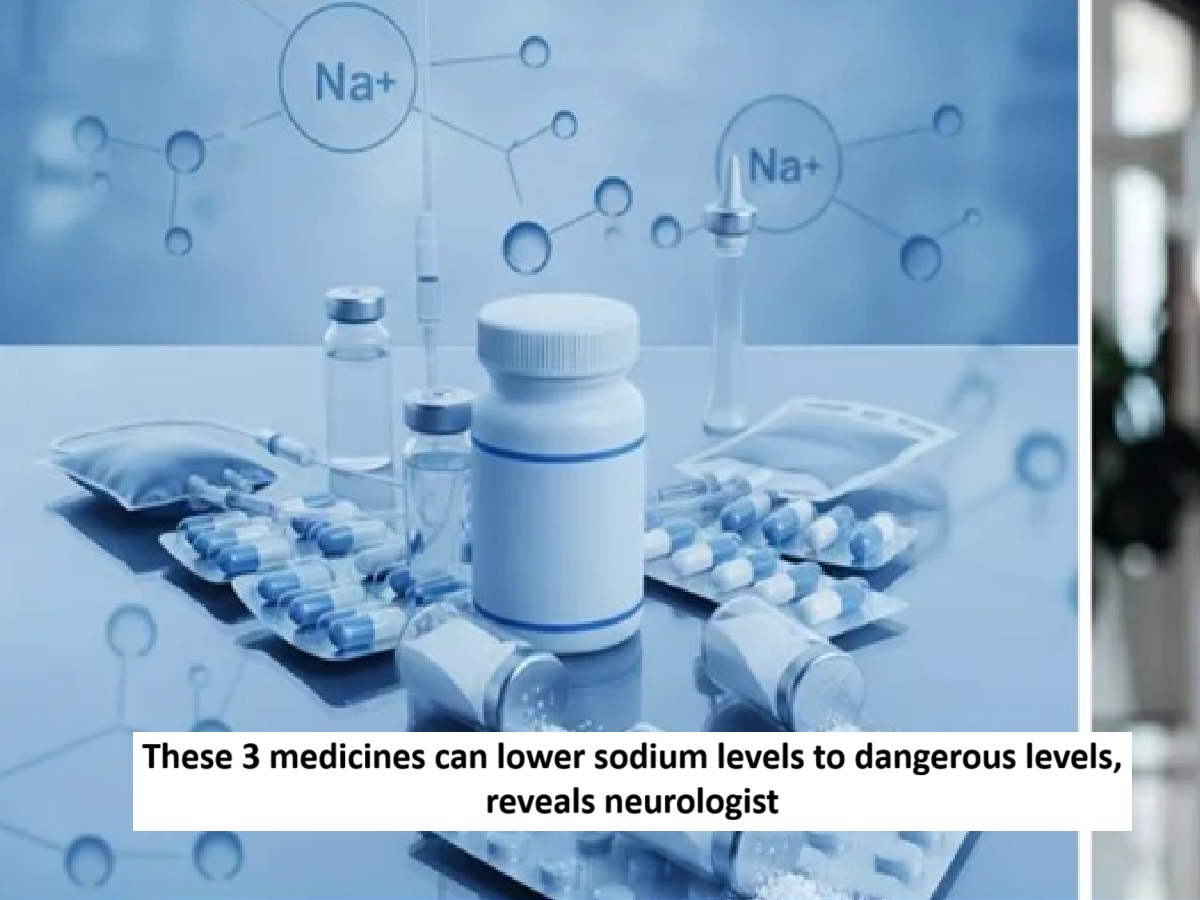
News Topical, Digital Desk : Dr. Sudhir Kumar, a senior neurologist at Apollo Hospitals in Hyderabad, warned about this serious risk in a social media post. This information is especially important for the elderly and patients taking long-term medications.
He says that three types of medications can cause low sodium levels (hyponatremia), which can be fatal if not recognized in time (Medications That Lower Sodium Levels). Let's find out.
What is hyponatremia and why is it dangerous?
Sodium is a vital electrolyte in our body. It maintains water balance inside and outside cells and is essential for the normal functioning of nerves and muscles. When sodium levels in the blood drop too low, water moves into the cells, causing them to swell.
Initial symptoms may be mild – such as fatigue, headache or confusion, but if the condition worsens it can affect brain cells, leading to serious conditions such as seizures, unconsciousness or coma.
3 medicines that can lower sodium levels
Dr. Kumar explained that three types of medications, which millions of people take daily, can dangerously lower sodium levels – especially in the elderly or those with pre-existing conditions.
Thiazide Diuretics
Medications used to control blood pressure include hydrochlorothiazide and indapamide. These medications cause the body to excrete water and sodium through urine.
If sodium loss becomes excessive, the body's balance can be disrupted, and sodium levels can drop dangerously. This problem is especially common in people who already suffer from dehydration or kidney problems.
SSRIs (Selective Serotonin Reuptake Inhibitors)
These medications, such as sertraline or escitalopram, are prescribed to treat depression and anxiety. Dr. Kumar explains that these medications can affect the anti-diuretic hormone (ADH) in the body. When ADH is produced in excess, water retention occurs in the body, leading to hyponatremia. The risk increases further if a person is also taking blood pressure medication or a diuretic.
Carbamazepine and Oxcarbazepine
These medications are commonly prescribed to control seizures and as mood stabilizers. These medications can cause a condition called SIADH (Syndrome of Inappropriate Antidiuretic Hormone secretion), in which ADH levels in the body increase abnormally. This leads to water retention and dangerously low sodium levels. This risk is higher in people who are already taking multiple medications or who are older.
Which people are more at risk?
Certain conditions increase the risk of hyponatremia:
- Taking multiple medications at the same time that affect water or sodium balance.
- With age, the body's kidney function and sodium control ability decrease.
- Chronic heart, liver or kidney diseases.
- Dehydration due to vomiting, diarrhea, or fever .
- Drinking too much water, which further dilutes sodium.
- When all these factors come together, the situation can quickly become serious.
It is important to recognize the symptoms on time
Early detection of hyponatremia can save lives. Doctors recommend that if you are taking any long-term medication, be on the lookout for the following symptoms:
- unusual tiredness or drowsiness
- Dizziness or difficulty concentrating
- Confusion, forgetfulness, or imbalance
- muscle weakness or cramps
- headache, nausea, or vomiting
- and in severe cases, seizures or loss of consciousness
If you experience any of these symptoms and are taking the medications mentioned above, consult a doctor immediately.
--Advertisement--

 Share
Share



